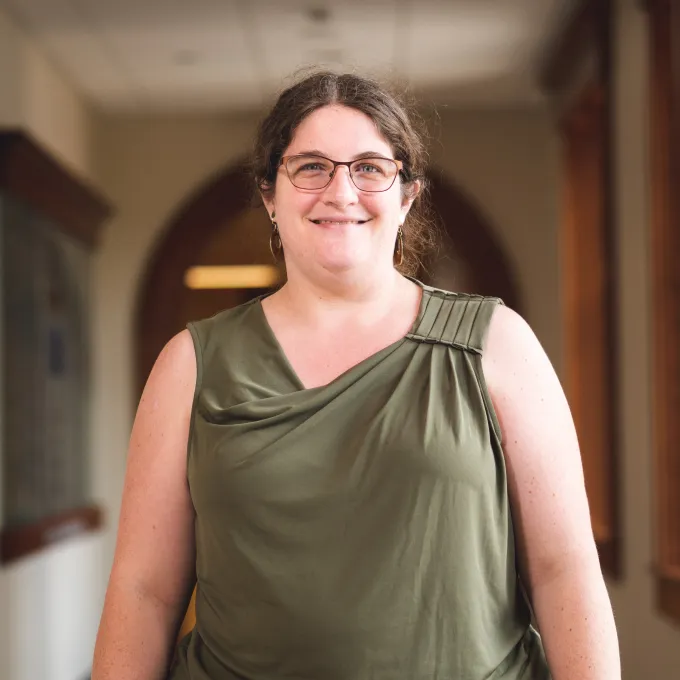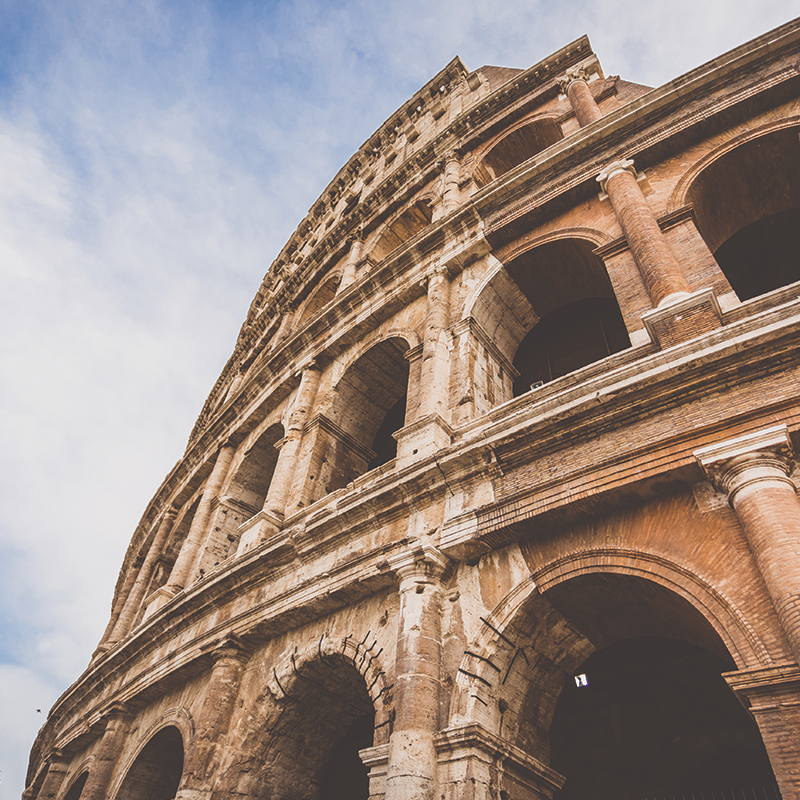https://classics.wustl.edu/xml/faculty_staff/12835/rss.xml
Rebecca Sears’ research interests include ancient music, papyrology, Latin poetry, particularly Ovid’s Metamorphoses, and ancient magic.
Sears is currently working on a textbook for the University of Michigan Press that will discuss important technical and cultural features of both Greek and Roman music, as well as the reception and reconstruction of ancient music. Prior to joining the department, she taught at Tulane University, Wake Forest University, and the University of Michigan. In addition to her love of Classical languages and cultures, she is a violinist who has performed in benefit concerts throughout New England.
recent courses
Projecting the Past: Ancient Greece and Rome in Modern Film (CLASSICS 2510)
Since the earliest days of film, screenwriters and directors have mined the rich history of Ancient Greece and Rome to captivate audiences with tales of heroes and slaves, soldiers and lovers. This course will examine such cinematic representations across a variety of American and European films from the 20th and 21st century. Drawing upon translated selections from ancient Greek and Roman authors, secondary readings and weekly screenings, students will reflect upon the ways in which film adaptations of antiquity both tell us much about Ancient Greece and Rome and reveal as much about our present as they do the past.
Ancient Greek and Roman Music (CLASSICS 4620/5620)
Music played a vital role in ancient Greece and Rome. New resources and perspectives now allow us to appreciate the ancients' music better than ever before. This course addresses the nature of ancient music (instruments, melody and rhythm, modes), ancient attitudes towards music, and its contribution to public and private life. Although the focus throughout will be on our ancient sources, both literary and archaeological, this course will also address the work done by experimental archaeology and present day musicians in reconstructing the soundscapes of ancient music.
Hesiod (GREEK 4160/5161)
In this course, we will read substantial passages from the works attributed to Hesiod, an archaic period Greek poet whose style and subject matter are often contrasted to Homer, and whose influence on Greek literary culture was second only to Homer's. Hesiod's two major poems - Theogony and Works and Days - form important evidence for the Greek rhapsodic tradition, and the mythological content and compressed styles of these mini-epics strongly influenced later Hellenistic Greek and Roman poets. Through discussion of readings from recent scholarship, we will consider topics including the authorship and dating of the Hesiodic corpus, Hesiod's Near-Eastern influences, oral poetics, mythography, genre studies, and narratology. Preparation of substantial Greek reading assignments will be supplemented with frequent practice of scansion (both written and oral) and the parallel development of sight translation skills. Students will be responsible for the development of a portfolio consisting of written translations, creative and interpretive mini-projects, a commentary, and an original research project.
Selected Publications
“Sucis Hecateidos Herbae: A Magical Curiosity in Ovid’s Metamorphoses,” in L. Pratt and C. M. Sampson, eds., Engaging Classical Texts in the Contemporary World: From Narratology to Reception University of Michigan Press (under contract, anticipated fall 2018).
“A Michigan Musical Papyrus Revisited,” Bulletin of the American Society of Papyrologists (Vol. 52, 2015) 143-179.
“Reconstructing the Contexts of a Greek Musical Papyrus,” in T. G. Wilfong and Andrew Ferrara, eds., Karanis Revealed: Uncovering the Past and Present of a Michigan Excavation in Egypt, Kelsey Museum Publication 7 (Ann Arbor: Kelsey Museum Publications, 2014).


